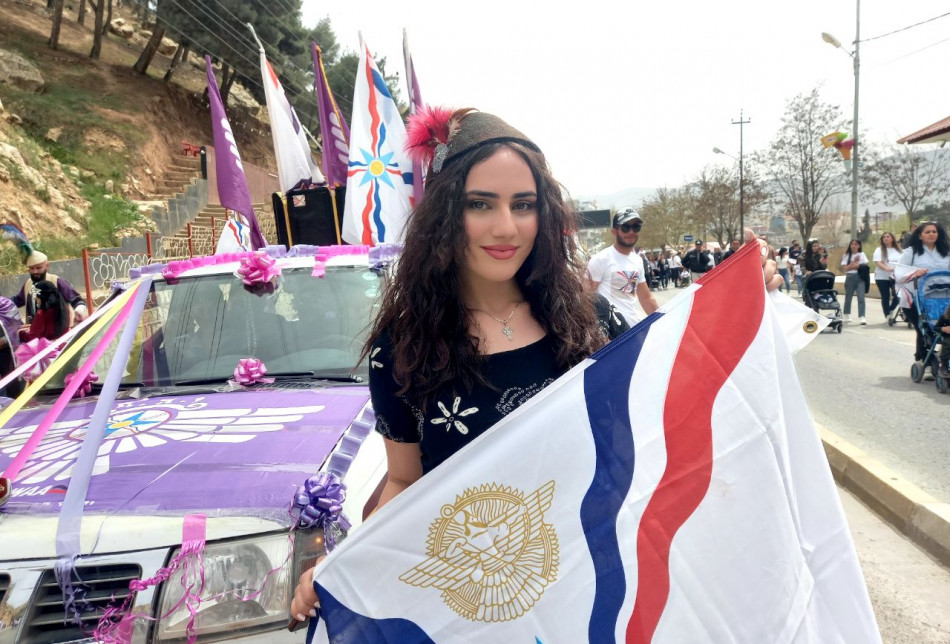The Christians and Turkmen are not satisfied with the decision of the Judicial Election Commission, which asked the Independent High Electoral Commission IHEC to allocate five quota seats for minorities in the Iraqi Kurdistan Regional Parliament, while the decision was applauded by the Armenians.
In a decision issued on Monday, May 20, the Judicial Commission for Elections asked the Electoral Commission to secure five quota seats for Turkmen, Christians, and Armenians, within the 100 seats in the Kurdistan Parliament, with two seats in each of Sulaymaniyah and Erbil, and one seat in Dohuk Northern Provinces.
Yarwant Nisan Marcus, a member of the previous session of the Kurdistan Parliament representing the Armenian community, told KirkukNow, “We are very happy with the decision because we will be represented in the next parliamentary session. We are ready from now for the elections.”
Under the seat distribution mechanism, a single quota seat in Dohuk Northern Province is allocated to Armenians, according to the Electoral Commission spokeswoman.
There are no accurate statistics available on the number of Armenians in Iraq. Some estimate their number at about 20,000 people while the head of the Armenian community in Dohuk says that their number in the Kurdistan Region is 3,000 people, while throughout Iraq hits 12,000.
The majority of Armenians reside in Baghdad, the Nineveh Plain, the city of Mosul, the center of Nineveh Province, Kirkuk, and the provinces of the Iraqi Kurdistan Region IKR.
On the other hand, representatives of the Turkmen and Christians, who were allocated four seats in the governorates of Erbil and Sulaymaniyah, expressed their dissatisfaction with the decision, especially how the seats were distributed among the governorates.
Azad Kurachi, head of the Millat bloc in the fifth session of the Kurdistan Regional Parliament, who is from the Turkmen component, said, “We are very dissatisfied with the decision. The quota seats were supposed to be in one electoral district and not four districts, similar to the system followed in Iraq.”
“Secondly, the seats were distributed incorrectly, and the two seats were supposed to be for the Turkmen in Erbil Governorate. For example, they allocated a quota seat for the Turkmen in Sulaymaniyah, even though the number of Turkmen is very small in this governorate. This is unfair,” he added,
“The same thing applies to Dohuk Governorate because there are large numbers of Chaldeans, Syriacs, and Assyrians without a seat allocated for them... Few Christians live in Sulaymaniyah, yet a quota seat was allocated for them.”
Kurachi believes that it would have been better to allocate seven quota seats, “three seats for Turkmen, two of them in Erbil and one in Sulaymaniyah, and adding a seat for Christians in Dohuk.”
“We, as Turkmen, will do our best to change the distribution mechanism, so that it takes into account justice and the quota seats are within one electoral district.”
Turkmen, the third largest ethnic group in Iraq after Arabs and Kurds, are spread across the country, residing almost exclusively in the northern towns and villages stretching from Tal Afar through Mosul, Erbil, the center of Kirkuk, and Altun Kopri district, Tuz Khurmatu of Salahaddin and Kifri and Khanaqin in Diyala. They are all Muslims, half Sunnis and half Shiites.
Though there are no official records about the Turkmen in Kirkuk, the Turkmen political parties say there are over 200,000 Turkmen voters in Kirkuk which has been divided into three constituencies for 12 seats in the October 10th, 2021 General Elections.
Observers believe there are about 600,000 Turkmen in Iraq while the Turkmen political parties claim they are about 2 million population.
Linus Odisho, a member of the Dohuk Provincial Council for the Assyrian Chaldean Syriacs, told (KirkukNow) that “the decision of the Judicial Commission for Elections is another mistake added to the issue of quota seats because a single seat was allocated in the Dohuk Governorate, which is for the Armenians.
“I wonder, who do the Syriac Chaldeans vote for in Duhok? The number of Christians in Dohuk is approximately 60,000 people. If changes are not made, we will not go to the ballot boxes,” he added.
"The best solution is for voting for the quota seats to be within one electoral district so that the people of the components can vote for their candidates in their regions."
Two decades ago, Iraq was home to over 1.5 million Christians, 3% of Iraq's population falling to 800,000 in 2003 following the Gulf War. They mainly live in the provinces of Baghdad, Nineveh, Duhok, Kirkuk, and Erbil.
Latest figures say currently only 250,000 to 500,000 Christians are living in Iraq. The number of Christians in Iraq has fallen to 250,000, mostly in the Iraqi Kurdistan Region IKR, the Iraqi High Commission for Human Rights said in March 2023.
The Iraqi constitution recognized Christianity, the second religion in Iraq following Islam, and their Syriac language. Figures by the Iraqi Kurdistan Regional Government KRG show that out of 700,000 IDPs in 26 camps for Internally Displaced Persons IDPs, over 7% were Christians.
The representative of the Chaldean Syriac Assyrians indicated that they would announce their position within the next few days. “We hope that changes will be made in the seat distribution mechanism in the interest of all parties.”






